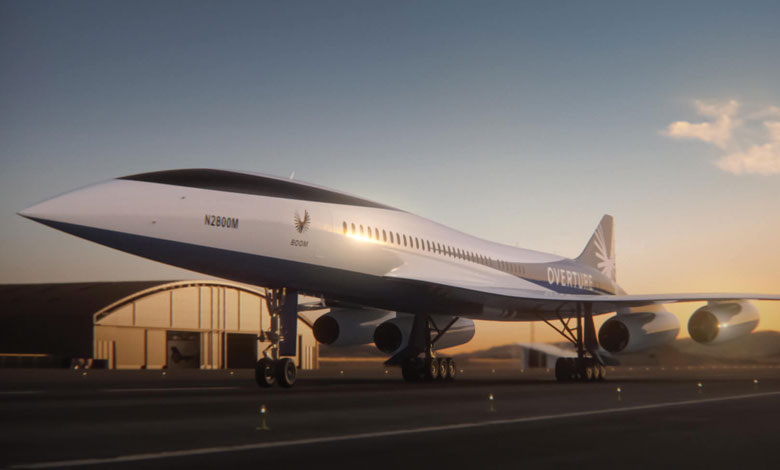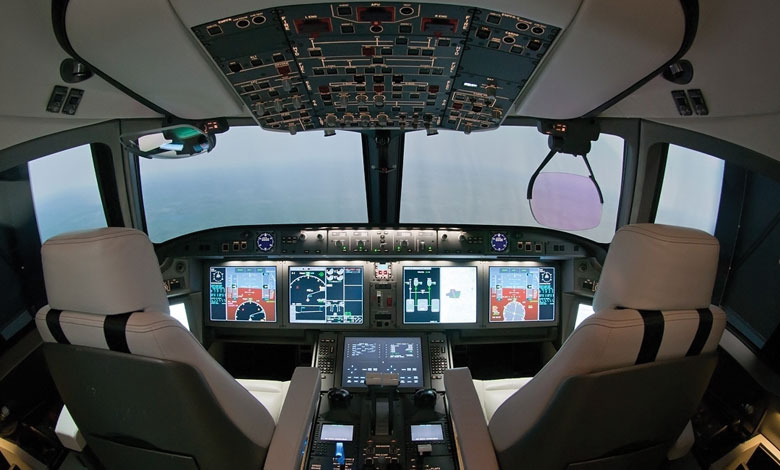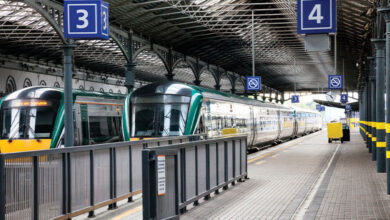Innovation in commercial aviation in 2025

Climate change, sanctions on Russia, and trade disruption with the United States are all geopolitical events which are fostering an innovation race in aviation arguably not seen since the introduction of the jet engine.
Among the developments are new commercial competitors emerging from Russia and China to the A320 and 737, produced by Airbus Industrie and Boeing respectively.
While supersonic travel has not been a feature in commercial aviation since the retirement of the Concorde in 2003, Boom Technologies in the United States has outlined its ambition to produce a new supersonic commercial passenger jet by 2030.
Furthermore, in light of the desire to decarbonise the aviation sector, there is a race underway to produce the first commercial electric aircraft. While there is no question of electric-powered aircraft being able to sustain high-demand medium-to-long-range commercial routes, they are highly feasible for the future of short-haul commuter traffic.
Innovation in the east
Geopolitical change amid the rising power of China, in alongside the western world’s shunning of the Russian Federation as a consequence of its invasion of Ukraine, have led to increased domestic demand for indigenously manufactured aircraft for both the domestic markets in China and Russia respectively.
China, the world’s second most populous country and third largest by land area, has an intricate aviation network, with Shanghai Pudong, Guangzhou Baiyun, Beijing Capital, and Shenzhen Bao’an airports all among the 20 busiest in the world. Furthermore, three of the world’s 10 largest airlines – China Southern Airlines, China Eastern Airlines, and Air China – are based in China, with these three airlines comprising a total combined fleet size of 1,830 aircraft. Despite this vast scale in fleet size and air traffic, only 114 of this total are Chinese-manufactured aircraft.
To meet the demand from the Chinese Government to move away from western manufactured aircraft, Comac, the Chinese state-owned aerospace manufacturers, has produced two jetliners: the C909, a regional-sized jet; and the C919; a mid-sized jet comparable with the Boeing 737 and Airbus A320. Over 1,000 orders have been placed for the C919. While all these orders have been made by Chinese airlines, western orders remain a possibility (see below).
In Russia, the sanctions placed on President Vladimir Putin’s regime have meant that the Russian flag carrier Aeroflot and other Russian airlines are unable to order western aircraft or procure authentic components for the maintenance of these aircraft. Under the orders of Putin, the United Aircraft Corporation – comprising Tupolev, Ilyushin, and Yakovlev and three other manufacturers – has developed the Yakovlev MC-21.

The Yakovlev MC-21 is the most technologically advanced commercial aircraft to have been produced in Russia, and has relatively high market demand due to western sanctions on Russia.
As of May 2025, there are 175 orders placed by airlines based in Russia and Azerbaijan, with potential for another 140. If these orders go ahead, this would be the greatest number of orders for a Russian commercial jetliner since the Tupolev 154, which was introduced in 1968, and the most since the collapse of the Soviet Union.
Electrifying aviation
Electrification of aviation is not a viable solution for international commercial traffic. However, for short commuter routes, electric aircraft have the potential to provide a commercial option for airlines seeking to replace turboprop aircraft, which are commonly used for routes between, for example, Britain and Ireland.
While there have been projects ongoing in Italy and Israel, these have been sidetracked due to technological development challenges. Furthermore, the ongoing Israeli genocide in Gaza means that trade ties between the State of Israel and western states may undergo significant transformation. In this context, it is likely that there will not be a reliable supply pipeline to attract investment from commercial airlines in the western world.
Supersonic travel
Not since the retirement of the Concorde in 2003 has any commercial ticket been available to travel at supersonic speed. Viewed in the 1960s and 70s as the future of commercial air travel, the 1970s oil crisis and the rise of environmentalism meant that the only commercially viable path for Concorde was for tickets to be sold at ‘sky high’ prices.
23 years on from the retirement of Concorde, Boom Technologies – an American manufacturer established in 2014 – is targeting the introduction of a new supersonic jet, the Boom Overture, by 2030.
With a market projection claiming that there will be demand for 1,000 supersonic aircraft, the Boom Overture, has 35 firm orders in the United States. One potential bottleneck for the project is the manufacturer’s stipulation that operators “must use sustainable aviation fuel (SAF) and/or purchase high-quality carbon removal credits” due to the considerably higher fuel burn of supersonic engines than subsonic jet engines. Therefore, the delivery – and commercial viability – of this project depends on the availability of SAF; a product which is not widely used to date and is expensive.
Aviation in Ireland
Headwinds facing US-European trade have led Michael O’Leary, the CEO of Ryanair, to threaten to end its lucrative partnership with Boeing.
Ryanair has a fleet of 587 aircraft, all of which are Boeing 737 aircraft. This means that Ryanair is the second largest operator in the world of the Boeing 737.
However, O’Leary, in response to US President Donald Trump’s initial imposition of tariffs on EU exports to the US, announced that Ryanair would explore the viability of changing its outstanding orders to the Chinese-built Comac C919.
Speaking in early May 2025, O’Leary, in a letter to American Congressman Raja Krishnamoorthi, said Ryanair would “reassess” its Boeing order if US tariffs increase the cost of the company’s planes. The airline currently has 330 planes on order with Boeing; the order is estimated to be worth about $30 billion.
eolas Magazine has approached Ryanair for comment.





